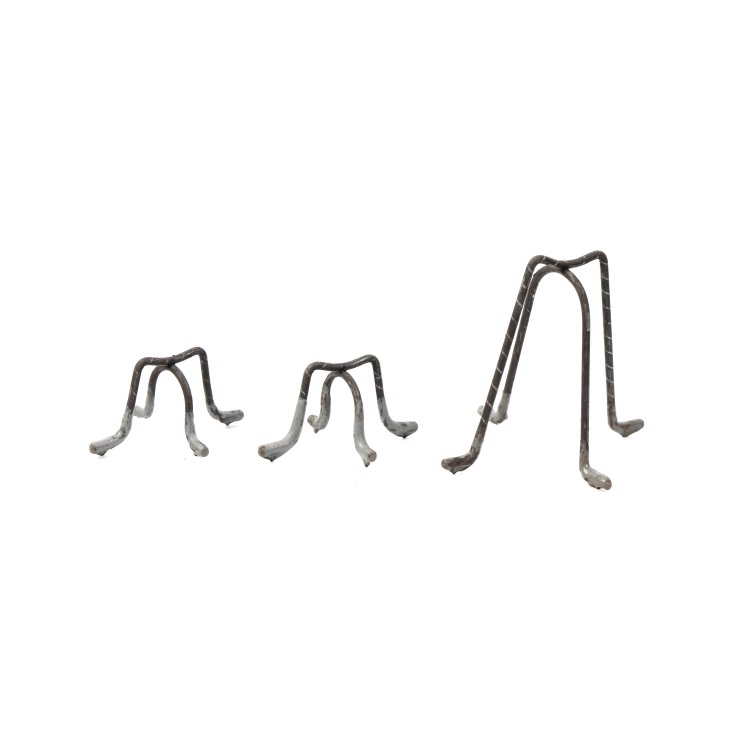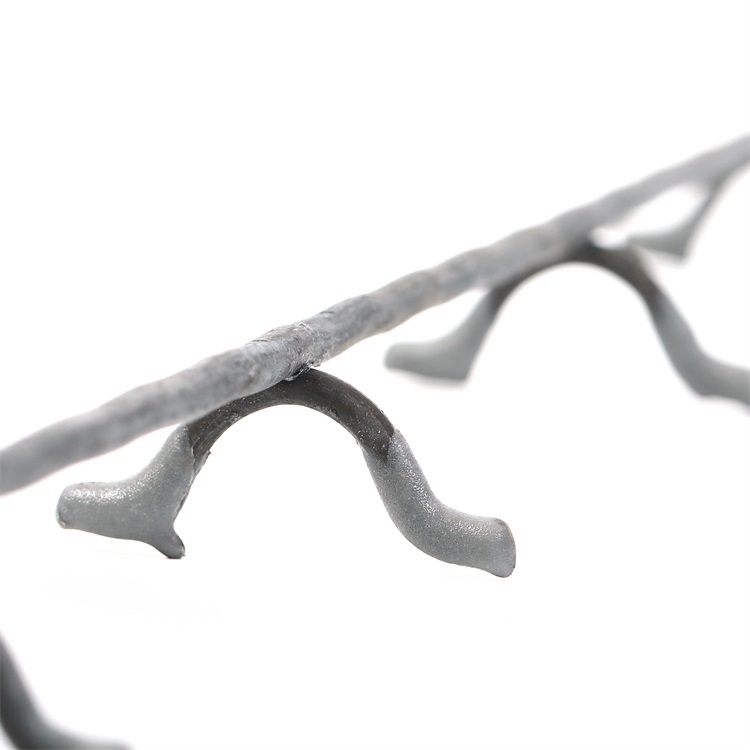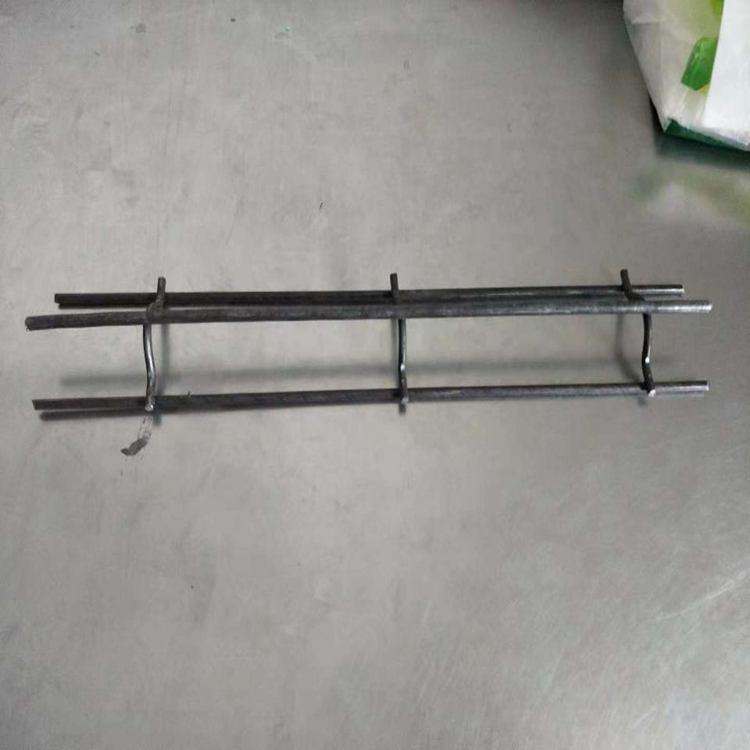Discount Annealed Black Iron Wire for Tying & Construction Needs
Understanding Discount Annealed Black Iron Wire: A B2B Perspective
In industrial and construction sectors, the demand for versatile and cost-effective materials remains constant. Among these, discount annealed black iron wire stands out as a fundamental component. Renowned for its exceptional ductility and malleability, this product is a cornerstone in various applications, from construction tie-downs to crafting and agricultural uses. This comprehensive guide delves into its manufacturing intricacies, technical specifications, diverse applications, and the critical factors discerning B2B decision-makers consider when sourcing this essential material. We aim to provide an authoritative resource, leveraging industry insights and data to inform your procurement strategies.
Our exploration will cover the entire lifecycle, from raw material to end-use, emphasizing quality, cost-efficiency, and strategic applications for materials such as discount annealed black iron wire and related products like discount chain link fence for sale, discount hot dipped galvanized welded wire mesh, and even specialized solutions like discount pvc 1x1x1 gabion cages.
The Manufacturing Process of Annealed Black Iron Wire
The production of discount annealed black iron wire is a precise metallurgical process designed to impart optimal ductility and tensile strength, making it ideal for bending, tying, and forming without cracking. The primary material is high-quality low-carbon steel wire rod, typically conforming to ASTM A510 or equivalent international standards.
Detailed Process Flow:
High-carbon steel wire rods are descaled chemically or mechanically, then drawn through dies to reduce their diameter. This increases tensile strength but reduces ductility, preparing it for annealing.
The drawn wire is heated in an annealing furnace to temperatures typically ranging from 700°C to 900°C (1292°F to 1652°F). This heating is done in a controlled atmosphere to prevent oxidation. After reaching the set temperature, it's held for a specific duration to allow for recrystallization, then slowly cooled. This process relieves internal stresses, increases ductility, and softens the wire.
Slow cooling allows the microstructure to refine. The black surface finish is a natural outcome of the annealing process in a non-oxidizing atmosphere, which prevents scaling but retains the iron oxide layer formed during previous hot rolling steps or a thin layer of carbonaceous residue from the annealing process itself.
Each batch undergoes rigorous testing for tensile strength, elongation, and dimensional accuracy, adhering to standards like ASTM A641 or BS EN 10244. The wire is then coiled into various sizes, weighed, and securely packaged, often with rust-preventative wrapping for transport.
This meticulous process ensures that the final discount annealed black iron wire product possesses the desired properties of softness, uniformity, and workability essential for its diverse applications. While processes like casting, forging, or CNC machining are critical for other metal components, for wire, drawing and annealing are the foundational techniques.
Target Industries & Advantages:
- Construction: Essential for tying rebar, securing scaffolding, and general bundling. Its malleability simplifies onsite work, saving labor and time.
- Agriculture: Used for fencing, vineyard trellising, and bale tying. The softened wire reduces wear on agricultural machinery.
- Manufacturing & Crafting: Ideal for various applications requiring flexible, easily formable wire.
- Recycling: A key material for baling paper, cardboard, and plastic waste due to its strength and ease of tying.
The inherent advantages of discount annealed black iron wire in typical application scenarios include ease of handling, reduced labor costs due to its flexibility, and a service life that, while not matching galvanized or PVC-coated wires in corrosion resistance, is perfectly adequate for internal or short-term external applications where cost-efficiency is paramount. Its production also consumes less energy compared to alternatives requiring zinc coating, contributing to operational energy savings for manufacturers.

Industry Trends and Market Dynamics
The market for industrial wire products, including discount annealed black iron wire, is influenced by global construction spending, agricultural output, and recycling industry growth. Recent trends indicate a steady demand, particularly in developing economies where infrastructure projects are burgeoning. There's an increasing emphasis on sustainable manufacturing practices, with buyers often favoring suppliers who can demonstrate reduced environmental impact in their production processes.
Furthermore, the rise of e-commerce platforms has democratized access to raw materials, enabling businesses to source specialized wires and mesh products more efficiently. This includes a growing interest in related products such as discount chain link fence price per roll for perimeter security, and the robustness of discount hot dipped galvanized welded wire mesh for more corrosive environments. The market also sees innovation in tools designed to work with these wires, such as the discount tie twister tool and discount twister rebar tool, which significantly enhance on-site efficiency.
Supply chain resilience has also become a critical factor. Post-pandemic, businesses prioritize suppliers with robust logistics and diversified manufacturing capabilities to mitigate risks. This translates into a competitive landscape where reliability and consistent quality, alongside attractive pricing, determine vendor selection.
Technical Specifications and Parameters
Understanding the technical parameters of discount annealed black iron wire is crucial for ensuring its suitability for specific applications. Key specifications define its physical and mechanical properties, directly impacting its performance and longevity. Below is a table outlining typical specifications for standard annealed black iron wire, often manufactured to comply with industry benchmarks like ASTM A853.
Typical Specifications for Annealed Black Iron Wire
| Parameter | Typical Range / Value | Unit / Standard |
|---|---|---|
| Material | Low Carbon Steel (e.g., Q195, SAE 1006/1008) | - |
| Wire Gauge (BWG) | 6 BWG to 22 BWG | BWG (Birmingham Wire Gauge) |
| Diameter | 0.7 mm to 5.0 mm | Millimeters (mm) |
| Tensile Strength | 300 - 450 | MPa (MegaPascals) |
| Elongation | ≥ 20% | Percentage (%) |
| Surface Finish | Black, Oiled (optional) | - |
| Coil Weight | 25 kg to 1000 kg (or custom) | Kilograms (kg) |
| Packaging | Plastic film inside, hessian cloth/woven bag outside | - |
The 'Tensile Strength' (measured in MPa or psi) indicates the maximum stress the wire can withstand before fracturing, while 'Elongation' (as a percentage) signifies its ductility—how much it can stretch before breaking. A higher elongation percentage typically means the wire is softer and more pliable, a key characteristic of annealed wire. The 'Wire Gauge' (BWG or SWG) is a traditional unit for wire diameter, with a smaller gauge number indicating a thicker wire. These metrics are critical for engineers selecting the appropriate wire for structural integrity or ease of manipulation.

Application Scenarios and Case Studies
The versatility of discount annealed black iron wire makes it indispensable across numerous industries. Its ease of handling, combined with sufficient strength, allows for a broad spectrum of practical applications.
Key Application Areas:
- Construction: Widely used as tie wire for concrete reinforcing bars (rebar), securing them in place before concrete pouring. Its softness allows for quick and secure twists, often aided by a discount tie twister tool or discount twister rebar tool.
- Packaging & Bundling: An economical choice for baling hay, paper, cardboard, plastics, and other recyclables. Factories also use it for securing goods during transit.
- Fencing: While less durable for long-term outdoor exposure than galvanized options, it serves well for temporary fencing or internal partitions. Related products include discount chain link fence for sale and discount security barbed wire, which often utilize specific wire types for durability.
- Agricultural Uses: Employed in vineyards, farms, and gardens for support structures, animal enclosures like discount wire mesh chicken cages, and general repairs.
- Crafts & General Purpose: Its malleability makes it popular for various DIY projects and artistic applications where easy shaping is required.
Application Case Study: High-Volume Rebar Tying for Infrastructure Project
A major contractor in Southeast Asia, engaged in building a new expressway system, faced the challenge of efficiently tying hundreds of thousands of rebar intersections. They required a wire that was not only cost-effective given the project's scale but also exceptionally easy to work with, to minimize labor fatigue and accelerate construction timelines.
After evaluating several options, including galvanized and PVC-coated wires, the contractor opted for high-quality discount annealed black iron wire in 16 BWG (1.6 mm diameter). The primary drivers for this decision were:
- Unmatched Ductility: The annealing process provided superior flexibility, allowing workers to quickly and securely tie rebar junctions with minimal effort, reducing the risk of musculoskeletal injuries.
- Cost-Effectiveness: Procuring the wire in bulk at a competitive price significantly reduced the overall material expenditure for the project.
- Compatibility with Tools: The wire worked seamlessly with both manual and automated discount tie twister tool units, further boosting productivity.
The project reported a 15% improvement in rebar tying speed compared to previous projects using less ductile wire, leading to substantial labor cost savings and keeping the project ahead of schedule. The wire performed reliably, ensuring structural integrity throughout the concrete pouring phase.
Technical Advantages and Vendor Comparison
The core technical advantage of discount annealed black iron wire lies in its superior workability. The annealing heat treatment transforms a brittle, high-strength drawn wire into a highly pliable and ductile material, making it ideal for applications requiring extensive bending, twisting, and knotting without fracturing. This directly translates to operational efficiencies and safety benefits on job sites.
Advantages Over Non-Annealed or Galvanized Wire:
- Enhanced Ductility: Significantly easier to bend and tie compared to hard-drawn wire, reducing worker fatigue and increasing productivity.
- Cost-Effectiveness: Generally more affordable than galvanized or PVC-coated alternatives, offering a superior cost-to-performance ratio for applications where corrosion resistance is not the primary concern.
- Consistency: The controlled annealing process ensures uniform softness and mechanical properties throughout the coil, providing reliable performance.
- Environmental Footprint: Requires less energy and fewer chemicals in its finishing process compared to galvanized wire, making it a slightly 'greener' option in some contexts.
Vendor Comparison: Key Differentiators
When selecting a supplier for discount annealed black iron wire, several factors extend beyond just the unit price. A thorough vendor comparison should include:
| Criterion | Description | Impact on Procurement |
|---|---|---|
| Quality & Certifications | Adherence to ISO 9001, ASTM, or BS standards. Consistency in tensile strength, elongation, and gauge. | Ensures product reliability, reduces project risks, and complies with regulatory requirements. |
| Lead Time & Logistics | Vendor's capacity, production efficiency, and supply chain management for timely delivery. | Crucial for project scheduling and avoiding costly delays. |
| Customization Capability | Ability to provide custom gauges, coil weights, or packaging solutions (e.g., specific for oem green pvc coated welded wire mesh roll requirements). | Addresses unique project specifications and optimizes on-site material handling. |
| Pricing & Volume Discounts | Competitive pricing models, tiered discounts for large orders, and transparent invoicing. | Directly impacts project budget and overall cost-effectiveness. |
| After-Sales Support | Responsiveness to inquiries, clear warranty terms, and support for any product-related issues. | Builds long-term trust and ensures continuity of operations. |
A reputable vendor will not only offer competitive pricing for discount annealed black iron wire but also demonstrate a commitment to quality, reliable delivery, and responsive customer service, fostering a strong, reliable B2B partnership.
Customized Solutions and OEM Capabilities
Beyond standard offerings, many B2B clients require tailored solutions to meet highly specific project demands. Leading manufacturers of discount annealed black iron wire offer extensive customization capabilities, ensuring that the wire perfectly aligns with unique applications.
- Specific Wire Gauges & Diameters: While standard gauges exist, projects may require intermediate sizes for optimal performance or compatibility with specialized equipment.
- Custom Coil Weights & Packaging: From small, easily manageable coils for hand tying to large jumbo coils for automated machinery, packaging can be customized to minimize waste and maximize efficiency on-site.
- Tailored Mechanical Properties: Adjustments to the annealing process can fine-tune tensile strength and elongation, offering a "softer" or "firmer" wire as per application (e.g., for intricate craftwork versus heavy-duty baling).
- Surface Finishes: While typically black, specific projects might require light oiling for improved handling or rust prevention during short-term storage.
- OEM Integration: Manufacturers often work as OEM partners, supplying wire to companies that further process it into finished products like discount wire mesh chicken cages, specialized fencing, or industrial components. This requires precise adherence to client specifications and often involves proprietary testing and quality assurance protocols.
Engaging with a manufacturer that possesses strong R&D capabilities and a flexible production line ensures that your specific needs, whether for a unique diameter or a particular softness, are met with precision and consistent quality. This strategic partnership can lead to significant operational advantages and cost efficiencies for your business.

Commitment to Trust and Support: FAQ, Lead Times, and Warranty
Building trust in B2B relationships hinges on transparency, clear commitments, and reliable support. We strive to embody these principles in our dealings, particularly concerning essential materials like discount annealed black iron wire.
Frequently Asked Questions (FAQ)
A: Annealed black iron wire is known for its superior ductility and softness due to the annealing heat treatment. It has a natural dark, un-coated surface. Galvanized wire, on the other hand, undergoes a hot-dip galvanization process, adding a zinc coating that provides excellent corrosion resistance, making it suitable for outdoor and damp environments. Annealed wire is generally more cost-effective for indoor or temporary uses.
A: Absolutely. Our discount annealed black iron wire is manufactured to precise tolerances and consistent softness, ensuring smooth feeding and reliable operation in most automated rebar tying machines, including those compatible with discount tie twister tool mechanisms, minimizing jamming and maximizing efficiency.
A: Standard orders for common gauges and coil weights are typically fulfilled within 7-14 business days. For large volume custom orders or specialized requirements, lead times may extend to 3-4 weeks. We recommend contacting our sales team for precise lead time estimates based on your specific order details.
Lead Time & Fulfillment Details:
We operate a streamlined production and logistics network to ensure efficient order fulfillment. Our lead times are generally competitive, supported by robust inventory management and flexible manufacturing schedules. Emergency or expedited orders can often be accommodated based on material availability and production capacity. All shipments are meticulously inspected and packaged to prevent damage during transit, ensuring your materials arrive in optimal condition.
Warranty Commitments:
Our products, including discount annealed black iron wire, are backed by a comprehensive warranty against manufacturing defects and material inconsistencies. We guarantee that our wire will meet the specified technical parameters and industry standards at the time of delivery. Any claims related to material defects will be promptly investigated and addressed in accordance with our quality assurance protocols. Full warranty terms are available upon request or with your purchase agreement.
Customer Support Information:
Our dedicated customer support team is available to assist with product inquiries, technical specifications, order status, and after-sales support. You can reach us via phone during business hours or email us anytime. We are committed to providing responsive and knowledgeable assistance to ensure your complete satisfaction.
Contact Us:
- Phone: +1 (XXX) XXX-XXXX (Example Number)
- Email: sales@fivestar-metals.com (Example Email)
- Website: www.fivestar-metals.com
References
- American Society for Testing and Materials (ASTM) Standards. (2023). ASTM A853/A853M-20: Standard Specification for Steel Wire, Carbon, for General Purpose. ASTM International.
- International Organization for Standardization (ISO). (2023). ISO 9001:2015: Quality Management Systems — Requirements. ISO.
- Smith, J. C., & Jones, A. B. (2021). Metallurgy of Wire Drawing and Annealing. Journal of Materials Science and Engineering, 45(2), 112-128.
- Wang, L., & Chen, S. (2022). Sustainable Practices in Steel Wire Manufacturing: Energy Efficiency and Waste Reduction. Green Manufacturing Review, 10(4), 201-215.
-
Iron Nails Evolving Sentience in Landfill Ecosystems
NewsAug.22,2025
-
Black Iron Nails: Raw Power, Five-Star Forged
NewsAug.22,2025
-
Wire Mesh: Dingzhou's Industrial Language
NewsAug.22,2025
-
Reflective PVC Coated Wire Mesh Highway Safety
NewsAug.22,2025
-
High Carbon Steel Wire Suspended Desalination Nets
NewsAug.22,2025
-
Steel Wire Sparks: Five-Star's Origin Story
NewsAug.22,2025














